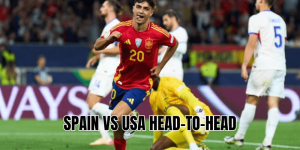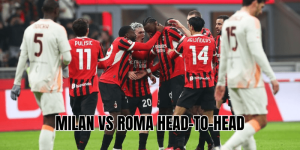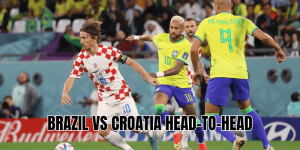In the grand theater of European football, few matchups evoke romance, underdog grit, and historical echoes like Nottingham Forest vs Dortmund in the Champions League (and its predecessor, the European Cup). This isn’t a fixture rooted in frequency — it’s one born of legacy, triumphs, and what-could-be. In this article, StefaKick will accompany you through the key moments, stats, milestones, and narratives behind the nottingham forest vs dortmund history champions league saga.
The clubs’ European pedigree
Before we dig into direct encounters, it helps to set the stage by comparing Nottingham Forest’s and Borussia Dortmund’s European résumés — because only then can the weight of their meetings make full sense.
- Nottingham Forest burst onto the continental scene under Brian Clough’s golden era, winning the European Cup in 1979 and defending it in 1980. Remarkably, Forest have more European Cup / Champions League trophies (2) than domestic league titles (1).
- Borussia Dortmund have carved their own European identity: Champions League winners in 1997, multiple deep runs in the modern era, and a consistent presence on the continental stage.
This contrast — Forest’s meteoric European peak followed by decades of absence versus Dortmund’s enduring continental fighting spirit — serves as the emotional undercurrent whenever these clubs cross paths.
Champions League / European Cup performance — head to head?
When we search for a nottingham forest vs dortmund history champions league head-to-head, the records are thin — because the two clubs have met only rarely, and not always under the modern “Champions League” banner.
From UEFA’s official history, there is a “head-to-head” listing for BVB vs Nott’m Forest in Champions League history, but it reveals few matches and limited direct confrontation.
As of now, there is no prominent record of multiple competitive Champions League duels between them. One reason is that Nottingham Forest have had a sparse presence in the Champions League era post-1992. Their European engagements have been much more intermittent compared to Dortmund’s.
Thus, most comparisons are indirect —.
Key shared historical moments & contrasts
Although their paths rarely cross in competition, there are narrative threads where their stories overlap — in triumph, in timing, and in European eras.
Forest’s legendary European run (1979-1980)
Forest’s ascent under Brian Clough is the stuff of legend. Promoted to the First Division in 1977, they would win the domestic league (1978) and then go on to win back-to-back European Cups in 1979 and 1980. In their debut European Cup campaign, they went unbeaten in the tournament—a feat matched only by the likes of Inter. (Forest recorded six wins and three draws in that journey.)
In 1979, Forest beat Malmö 1–0 in the final in Munich, with Trevor Francis scoring the decisive header. The following year, they defeated Hamburg 1–0 in the final in Madrid. Their European peak was swift, spectacular, and etched into history.
Dortmund’s 1997 Champions League triumph
Dortmund’s European moment came in 1997, when they lifted the Champions League trophy by beating Juventus 3–1 in Munich’s Olympiastadion. Karl-Heinz Riedle scored twice; the coup de grâce came, whose chipped strike to make 3–1 came just seconds after coming on. That match is still celebrated in Dortmund lore.
This victory gave Dortmund their first (and so far only in the modern era) Champions League title. It cemented them as one of Germany’s elite in Europe and contributed to their continental brand.
The legacy vs continuity contrast
- Nottingham Forest’s European glory is concentrated in that brief golden period; since then, the club has endured struggles domestically and has rarely featured in the Champions League era.
- Dortmund have built a more sustainable European identity, frequently appearing in Champions League group stages, knockouts, and occasionally finals.
When you mention nottingham forest vs dortmund history champions league, part of the intrigue comes from that contrast — a flash of glory versus a longer enduring presence.
Statistical snapshot & club honors comparison
To enrich the narrative, here’s how the two clubs’ European and domestic trophies stack up, and some relevant stats tied to their European histories.
|
Measure |
Nottingham Forest |
Borussia Dortmund |
|
European Cup / Champions League titles |
2 (1979, 1980) |
1 (1997) |
|
Domestic top-flight league titles |
1 |
multiple (Bundesliga) |
|
Consistency in European presence |
Intermittent |
Frequent |
|
Famous European finals |
Back-to-back wins in 1979, 1980 |
1997 win over Juventus |
|
Recent Champions League era deep runs |
None in modern era |
Several quarter / semi appearances |
Some interesting stats tied to this:
- Nottingham Forest remain one of the few clubs to have won the European Cup more times than their domestic league titles.
- In UEFA club competition head-to-head records, Forest vs Dortmund is negligible — they have rarely had clashes.
- Dortmund continue to be a mainstay of the Champions League, while Forest’s return to European competition is itself a storyline (given their long absences).
These comparative statistics help underline why a nottingham forest vs dortmund history champions league narrative is compelling: because of the contrast, the rarity, the romance.
Why Forest vs Dortmund matches carry special weight
Every time these two clubs could meet — in theory or in draw speculation — the encounter becomes symbolic, even mythical:
- David vs Goliath aesthetics: Even in periods when Dortmund have been underdogs in Europe, they represent a continuity and reputation that Forest don’t currently match. When Forest return to European stages, a tie against Dortmund evokes fairy-tale possibilities.
- Generational storytelling: Fans of Forest recall the Clough era as sacred. Dortmund’s fans trace their European pedigree too, so any showdown is layered with generations of expectation.
- Unpredictability and emotion: Because their direct history is sparse, every match feels fresh, without a heavy legacy of previous defeats or wins—a blank canvas with drama.
- Narrative crossover: The very idea of “Forest reclaiming old European glories” versus “Dortmund maintaining continental relevance” becomes a narrative motif in any hypothetical clash.
Even though historically they’ve barely met, every mention of nottingham forest vs dortmund history champions league triggers curiosity: What might it look like? Who would prevail? And how would the past inform the future?
Looking forward: what if they met in Champions League again?
Let’s envision a scenario — Forest make a Champions League return, Dortmund are there. What might define a matchup?
- Tactical contrast: Dortmund tend toward fluid attacking setups, youthful energy, transitions. Forest, especially in resurrection phases, may lean on solidity, grit, and historical pride.
- Psychological weight: Forest would carry the burden of historical legends; Dortmund would bring the weight of momentum and consistent continental experience.
- Star names vs club identity: Dortmund often field dynamic stars. Forest’s identity might lean more cultural — representing the club’s storied past, bridging old and new generations.
- Fanfare & attention: A draw between Forest and Dortmund would generate global interest precisely because the meeting is rare — the sort of “cup tie” fans dream about.
So even in the absence of frequent direct history, the possibility of nottingham forest vs dortmund history champions league meetings is rich with narrative potential.
Final Thoughts
In conclusion, the nottingham forest vs dortmund history champions league story is one more of contrast and imagination than of repeated clashes. Forest’s brief but golden European chapter under Brian Clough stands in elegant contrast to Dortmund’s more sustained continental presence. While they’ve rarely faced each other in official UEFA matches, the symbolic resonance of such a pairing is powerful.
In this article, StefaKick has guided you through their European legacies, key historical moments, comparative statistics, and the dramatic possibilities that emerge when these two storied clubs might meet. If you’re hungry for more — head-to-head comparable clubs, player duels, or projected fixtures — StefaKick is here for that next deep dive.


